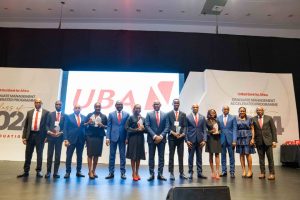How NIPOST involved in conditional cash transfer to deepen financial inclusion

The Nigerian Postal Service (NIPOST) has been fully involved in the federal government of Nigeria’s conditional cash transfer programme to deepen the financial inclusion drive of the Central Bank of Nigeria (CBN)
This development is contained in the CBN’s 1st Quarter Financial Inclusion Newsletter, NIPOST is now involved in the Conditional Cash Transfer programme by engaging and partnering with Western Union for the use of NIPOST outlets across the country for money transfers.
The apex bank in the newsletter said that they have commenced Biometric Verification Number (BVN) registration in 50 locations, with over 50 BVN machines received from the Nigerian Inter-Bank Settlement System (NIBSS).
In 2019, the National Financial Inclusion Strategy (NFIS) was revised with special focus to accelerate the financial inclusion of vulnerable segments across the Nigerian society. They include women, youth, rural areas, Northern Nigeria and Micro Small and Medium Enterprises (MSMEs).
The NFIS has equally identified critical priorities to accelerating the achievement of the national financial inclusion target of 80 per cent by December 2020. These include uptake of Digital Financial Services (DFS), expansion of agent network especially at rural areas, digitising government payments specifically to increase the coverage of recipients of social transfers for greater financial inclusion, among others.
Similarly, as parts of moves to deepen financial inclusion, the National Identity Management Commission (NIMC) has enrolled over 41million Nigerians for the National Identity Number (NIN). In the same vein, a World Bank-assisted project for electronic ID ecosystem was approved to commence in June 2020.
According to the 2018 Enhancing Financial Innovation and Access Report on Access to Finance, 96.3 million Nigerians out of 99.6 million do not have or use mobile money services, despite teledensity of 97.4 per cent in the Country.
Experts say that it is imperative to drive the usage of mobile money and DFS as viable tools to scale Nigeria’s COVID-19 responses to vulnerable segments, including the poor and vulnerable households, internally displaced persons (IDPs), and micro-businesses. This is expected to sustain and improve financial inclusion outcomes in the country.






